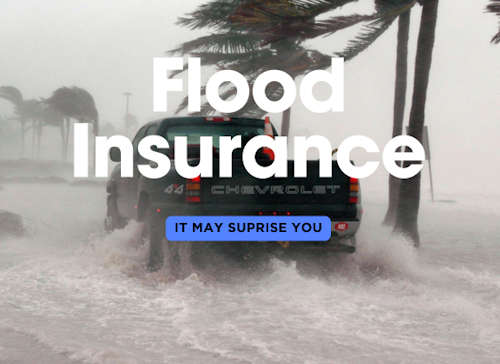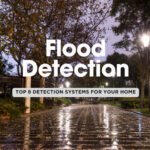Flood insurance is an essential safety net for homeowners living in flood-prone areas. However, many policyholders are often unaware of the limitations and exclusions that accompany their coverage. Understanding what is not covered can help homeowners make informed decisions about additional protection they may need. Here, we explore some surprising exclusions in flood insurance policies that every homeowner should know.
1. Basements and Below-Grade Living Spaces
🏠 Limited Coverage for Lower Levels
Many flood insurance policies limit or exclude coverage for basements and other below-grade living spaces. This means that if flooding occurs in these areas, damages may not be compensated.
- Why It Matters: Homeowners often use basements for storage, recreation, or even as living spaces, making the exclusion particularly concerning. To protect these areas, additional endorsements or specific policies may be necessary.
2. Damage to Personal Property
🛋️ Contents Not Always Covered
While flood insurance typically covers the structure of the home, it may not cover personal belongings stored in the basement or other affected areas.
- Common Exclusions: Items like furniture, electronics, and appliances may not be covered if they are damaged due to flooding.
- Why It Matters: Homeowners need to evaluate their personal property coverage under their policy and consider additional coverage for high-value items that could be lost in a flood.
3. Temporary Housing Costs
🏨 No Reimbursement for Displacement
In the aftermath of a flood, homeowners may need to relocate temporarily while repairs are made. However, standard flood insurance typically does not cover temporary housing costs or additional living expenses incurred during this time.
- Why It Matters: The financial burden of finding alternative housing can be significant. Homeowners should consider disaster assistance programs or additional coverage options to mitigate these costs.
4. Certain Types of Flooding
🌊 Exclusions Based on Flood Source
Flood insurance may not cover all types of flooding, particularly those resulting from specific causes, such as:
- Sewer Backups: If flooding is due to a sewer backup or drainage issues, it may not be covered under standard flood policies.
- Gradual Flooding: Damage caused by slowly leaking pipes or other gradual water intrusions is also typically excluded.
- Why It Matters: Understanding the specific causes of flooding that are excluded can help homeowners take preventive measures to protect their property.
5. Landscaping and Outdoor Structures
🌳 Limited Coverage for Exterior Features
Most flood insurance policies do not cover damage to landscaping, fences, decks, or other outdoor structures. This exclusion can be surprising for homeowners who invest heavily in their outdoor spaces.
- Why It Matters: While the main structure of the home is typically protected, outdoor investments can be significant. Homeowners may need to seek separate coverage or endorsements to protect these areas from flood damage.
6. Business Property and Income
🏢 Exclusions for Commercial Use
If a property is used for business purposes, standard flood insurance may not cover business-related property or loss of income due to flooding.
- Why It Matters: Business owners should consider specific commercial flood insurance policies to protect their assets and income streams during flood events.
7. Mold and Mildew Damage
🦠 Restrictions on Water-Related Issues
Flood insurance typically does not cover damage related to mold and mildew, which can develop as a result of water exposure if not addressed promptly.
- Why It Matters: Homeowners must take proactive measures to mitigate mold growth after a flood, as the costs of remediation can be high. This means that preventive actions and timely repairs are critical to avoid mold-related expenses.
8. Damage to Vehicles
🚗 Exclusion of Automobiles
Standard flood insurance policies do not cover damage to vehicles that are caught in a flood. This includes cars, trucks, boats, and other vehicles.
- Why It Matters: Homeowners should have separate auto insurance policies that include coverage for flood damage to vehicles, ensuring comprehensive protection against all potential flood-related losses.
9. Loss of Valuable Items
💍 Exclusions for High-Value Possessions
Many homeowners may be surprised to learn that flood insurance generally does not cover high-value personal items such as jewelry, art, and collectibles. These items often require separate coverage to protect against flood damage.
- Why It Matters: Owners of valuable possessions should assess whether their current insurance policies adequately cover these items. Consider obtaining a personal articles policy or an endorsement specifically for high-value items to ensure comprehensive protection.
10. Business Interruption Losses
📉 No Compensation for Lost Income
For business owners, flood insurance does not cover lost income due to business interruptions caused by flooding. This means that if a business cannot operate due to flood damage, the owner may not receive any compensation for lost revenue.
- Why It Matters: Business owners should consider additional business interruption insurance to protect against potential losses related to flood events. This coverage can help mitigate financial strain during periods of downtime.
11. Increased Costs for Repairs
🔧 Limitations on Additional Expenses
Flood insurance typically covers the cost of repairs to the structure and some contents, but it often excludes additional costs that may arise during the repair process.
- Why It Matters: Homeowners may need to prepare for potential out-of-pocket expenses for upgrades or repairs that exceed standard coverage limits. Understanding these limitations can help homeowners budget effectively for recovery.
12. Negligence and Poor Maintenance
⚠️ Exclusions Due to Lack of Care
Damage resulting from negligence or poor maintenance is usually not covered by flood insurance. If a homeowner fails to maintain drainage systems or allows issues to worsen, the insurance may not cover the resulting damages.
- Why It Matters: Homeowners are responsible for ensuring their properties are well-maintained and equipped to handle potential flooding. Regular maintenance and proactive measures can help prevent denied claims related to negligence.
Understanding what flood insurance doesn’t cover is just as crucial as knowing what it does. With these twelve surprising exclusions, homeowners can better prepare for potential financial pitfalls that come with flood risks. By assessing individual needs and considering additional coverage options, homeowners can ensure they are adequately protected against the unique challenges of living in flood-prone areas. Being proactive about insurance can safeguard your property and provide peace of mind in the face of unpredictable weather events.



